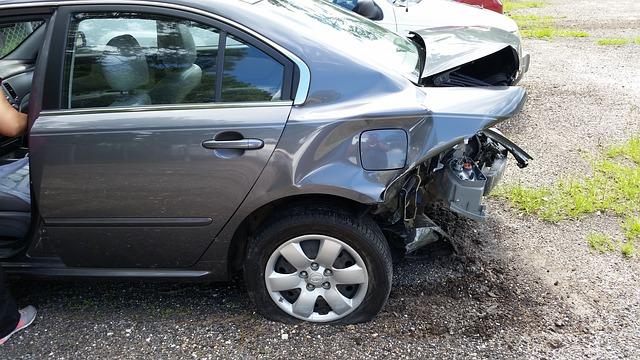 If you receive a subpoena after a car crash you didn’t cause, follow the advice from McDivitt Law Firm
If you receive a subpoena after a car crash you didn’t cause, follow the advice from McDivitt Law Firm
A car crash is like a huge storm, there is the initial crash and then there is the aftermath. Even when you are not at fault, there are unpredictable and unimaginable issues. Injuries, insurance companies, medical bills, lost time and money; it is enough to leave you feeling dizzy. And then there are legal issues. What happens if you are issued a subpoena for a car accident even when you are not at fault?
Unfortunately, it is not uncommon to have to appear in court for an accident. If the person who caused the crash contests the traffic ticket and it goes all the way to court, you could receive a subpoena. If the other driver fights the ticket, you could be called to testify against that driver. A subpoena means you are required to appear in court.
“This is a process that can feel very intimidating to a lot of people,” explains McDivitt Law Firm attorney Tom Dwyer. And Dwyer says you have to take the subpoena seriously. “Ignoring it means you could be held in contempt.” But he adds, when you are subpoenaed to appear in court, you are just telling your recollection of the events. Remember, you are not on trial. You were also a witness to the crash and your testimony can be very helpful in making sure the citation or ticket is upheld. While McDivitt Law Firm does not handle traffic ticket cases, we do see a lot of cases related to injury from a car crash and receiving a subpoena for a traffic accident is not out of the ordinary. The aftermath of a crash can be difficult and knowing the law and your rights can help you weather the storm, here are our suggestions on how to manage a subpoena.
So you’ve just been served with a subpoena, what does that mean? Being served with a subpoena isn’t the same as being served with a lawsuit, so first just relax. A subpoena is a formal writ ordering a person to appear in front of a court. This is often to testify as a witness in a case. There are two types of subpoenas. A subpoena ad testificandum compels a person to attend and give testimony at a certain time and place as specified in the subpoena. A subpoena duces tecum requires a person to produce certain documents designated in the subpoena and may require appearing and giving testimony as well.
Requirements of a Subpoena
In Colorado, subpoenas are subjected to the rules in Colorado Rules of Civil Procure Rule 45. The Rule provides that every subpoena must:
- State the court from which it is issued;
- State the title of the action, the court in which it is pending and the case number;
- Command the person to do one or both of the following: attend and testify at a deposition, hearing, or trial, or produce paper, documents, or electronic records in that person’s custody;
- Identify the party and the party’s attorney who is serving the subpoena;
- Identify the names, addresses, and phone numbers, and emails address if known, of the attorneys for each of the parties and any party in the action without an attorney;
- State the method for recording the testimony if the subpoena is for a deposition;
- If production of records is sought, certain text required under the rule must be included in the subpoena as well.
A subpoena for testimony in a trial or hearing must be served no later than 48 hours before the time for appearance set out in the subpoena. A subpoena for deposition testimony must be served no later than 7 days before compliance is required, and a subpoena for production of documents must be served no later than 14 days before compliance is required. The subpoena must be personally served on a witness, that is, in person, not by mail or publication.
Duties in Responding to a Subpoena
If you are served with a subpoena requiring your testimony, you are required to show up to the court on the subpoena at the time stated, and remain until the court releases you. If you receive a subpoena requiring the production of records, then you are only required to produce those records or documents, you are not required to attend the court hearing. Receiving a subpoena is seen as an obligation that a citizen owes to the government, and should never be ignored.
As part of your required attendance, you will be tendered payment of one day’s mileage at the time you are served or within a reasonable time after service. However, if the subpoena is issued by the state of Colorado payment of mileage need not be given.
If you fail to obey the subpoena, the common method of enforcing a subpoena is to obtain a court order requiring the witness who was served to appear before the court, or by initiating a civil contempt proceeding.
Quashing a Subpoena
You have the option of filing a motion to quash (to terminate) or modify a subpoena. The court must quash or modify a subpoena that:
- fails to allow a reasonable time to comply;
- requires a person who is neither a party nor a party’s officer to attend a deposition in any county other than where the person resides or is employed or transacts his business in person;
- requires disclosure of privileged or other protected matter; or
- subjects a person to undue burden.
This is not an exhaustive list, and there may be other reasons the court may deem to quash or modify a subpoena.
What Should You Do If You Receive A Court Summons
As required, you should appear before the court, and if needed provide records, as long as you were properly served in the required time period. If there is a reason why you cannot testify or produce documents, you may need to seek the help of an attorney who can file a motion to quash or modify. However, never ignore a subpoena as you may face a civil contempt proceeding.


